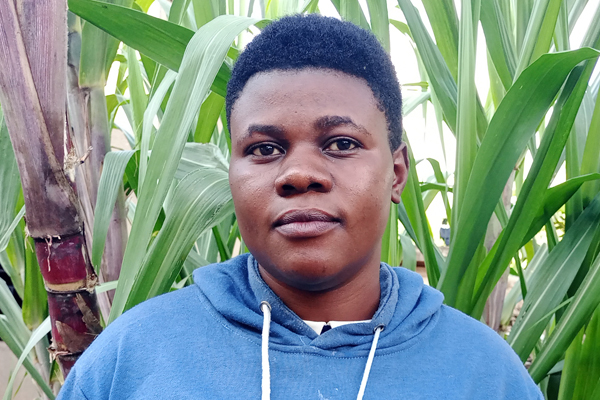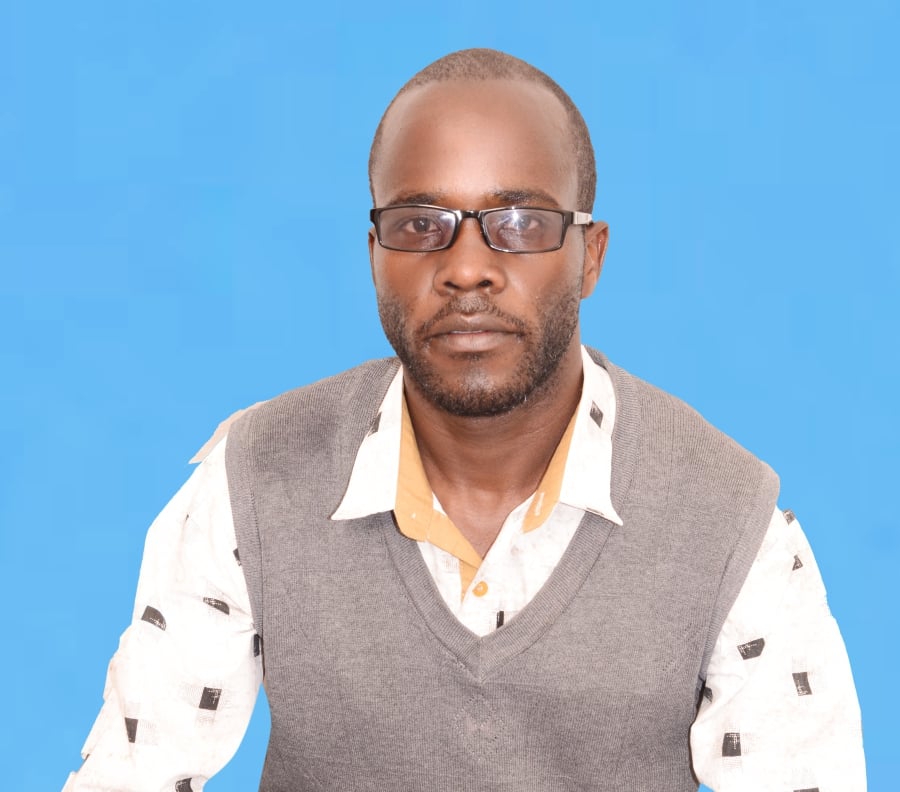Prime
Shattered dreams: Men hunt me for marriage, says Nayebare

Joseline Nayebare, 22, a resident of Kiyagaara 3 Nyabubaare Sub-county in Bushenyi District. PHOTO | ZADOCK AMANYISA
What you need to know:
- When the country announced lockdowns in 2020 and 2021 to curb the spread of Covid-19, the most affected were school-going children, many of them staying home for close to two years. In this twelfth installment of our continuing series, Shattered Dreams, we bring the story of a 22-year-old girl who has been pursuing a nursing course, but dropped out of school because the parents couldn’t afford fees. She is now struggling with marriage advances made by men in her village.
Joseline Nayebare, 22, from Kiyagaara 3 Nyabubaare Sub-County in Bushenyi District is the third born of six children. Nayebare was last in class on the day the government closed all schools so as to stop the spread of Covid-19 in Uganda. She was a student at Kampala International University western campus, pursuing a certificate in Comprehensive Nursing.
Because finances have not come easily to her family, Nayebare has studied with the help of bursaries all her school life, right from primary to secondary school. When she completed her A-Level, Nayebare opted to study nursing and the fees were paid by her uncle. This was halted when all education institutions were closed in 2020. Following the phased reopening of medical schools, she went back to the campus to check what amount was left for her to pay, because she had left without completing tuition.
“Normally after 45 days of reporting, the university puts a surcharge of Shs10,000 and then Shs60,000 for every two weeks after that to penalise defaulters. By the time I went back to check, the university had surcharged my account multiple times to a tune of Shs1.2 million. I was supposed to pay Shs1.95 million. The university kept demanding that we pay tuition even though we were in lockdown. Reminders kept flowing via SMS texts, WhatsApp and other platforms,” she recalls.
When medical schools reopened, Nayebare couldn’t afford to pay the money. She, along with her mother, Ms Dinavence Kamatungo, had contacted as many people as they could to help but they were also hard up due to the effect of Covid-19.
“There were some family friends and relatives that had been helping me previously. At that time, they could not pick phone calls because they knew we wanted money. Whenever I called, even if I wanted to communicate other things, they did not answer calls. If they did, the only word one could hear was “no money,” she says.
The situation got tougher in September 2021 after other students had reported back colleagues called to know if she still had interest in resuming studies.
“I couldn’t even ask for a dead semester or year because my mum told me there was no money, even when I was advised to apply for a dead year. My course mates sat end of semester exams and immediately reported for another one. The dean of students also called to ask what had happened. I went to campus, updated my records with the examinations body so that I am not discontinued and, thereafter, I went back home,” she recollects.
Life at home
Nayebare was born and raised in a low income household in a rural setting. Her mother is the only breadwinner as her father eloped with another woman leaving the family of six children under the care of a sickly mother.
Ms Kamatungo says the family has gone through violence with the family head – the father battering his family members whenever he is drunk.
“My husband left us for another engagement, but he keeps coming and his visits are characterised with fighting and beating everyone. He has not been able to contribute even a shilling towards fees and I am the only one struggling,” she says.
Nayebare is not the only one in the family who is unable to study currently.
“Out of six children, only three were in school; my two siblings and I dropped out and the other two are also struggling. Everything is dependent on our mother. The little she earns through selling pineapples and tomatoes is spent on her medication. My siblings are still in school because for secondary, you can study without paying school fees for some time but for me, I have to stay away from school,” Nayebare explains.
Ms Kamatungo narrates that she is among the people that were hit hardest by the pandemic since it came at a time when she was battling a long illness. By the time schools reopened, she was already struggling to support the family with food and household essentials, so, she was unable to raise money for her daughter.
“I borrowed money from village saving groups to support the family and access treatment since I had been sick. Time came and I failed to service the loans despite my efforts of working with my hands for survival. All these left me with no money at all and I had no savings,” Ms Kamatungo shares.
The other person who has been supporting Nayebare also found himself unable to, once the lockdown started to bite.
Mr Baker Kamukama, a teacher and Nayebare’s uncle, had been supporting Nayebare with tuition ever since she started the course. During the pandemic, however, he found it hard to pay for his and Nayebare’s tuition at the same time as he had taken steps to upgrade his academics. He had also acquired loans in order to survive during the lockdown, which he now had to pay.
“Before the lockdown, having been encouraged to upgrade, I enrolled for a course so that I could have more qualifications. I found it hard to pay tuition for Nayebare since I was also paying mine. That is how I failed to support this young girl,” he said.
Nayebare worries about her dreams and feels lost. “Almost all my dreams seem to be shattered. I have dreamt of putting on a nurse’s uniform, but how do I get there when my future looks like this?” she questions.
While at home because her education has been interrupted, Nayebare has faced psychological distress. She has been tempted many times to take on high risk work for her economic survival with and elderly men expressing interest in taking charge of her economic and education needs.
“I have had a legion of men including the elderly in their 50s to 60s coming to ask to marry me, just to take advantage of my situation,” Nayebare narrates.
She has, however, managed to put off advances of men by denying them time and contact. Because most of these men are in the surrounding areas, she has opted to leave home and stay in different places where she feels secure. She adds that older women and other counsellors have stood in the gap to help her.
Her hope
When asked what is needed for her to resume school, Nayebare says what she needs is finances to take care of her tuition and a few other expenses. By the time she dropped out, she was left with only three semesters to end her course.
“In this area of ours, it is easy for someone to provide food, but not money. I can get other things, but I cannot get money. If I got fees now, I would pack my things and go back to school and food would not be a problem because that’s how I have been living and I have survived all through,” she explains.
Nayebare is waiting for any financial aid so that she can go back to school. Her colleagues have their end of semester exams slated for June and July 2022. If she gets money, she will be able to continue with her colleagues and do exams for the semester she missed, but if she doesn’t, she will have to register a dead semester.
Community involvement
Global efforts are being called for to ensure all children return to school. Parents and communities are being recognised as key, necessary stakeholders in the education system.
Ms Janat Nakabugo, the inspector of schools in Wakiso District, told Daily Monitor in February that the community needs to be involved.
“It is not only about paying school fees, but talking to children and collaborating with other stakehoders to make schools safe learning spaces,” Ms Nakabugo said.
A report by the National Planning Authority released in January indicated that 30 percent (4.5 million) of an estimated 15 million learners in the country will drop out of school, stifling literacy levels.





